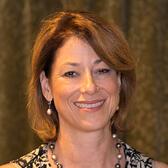Heritage in Progress
As a Jew by choice, I have for many years found May—Jewish American Heritage Month (JAHM)—problematic and uncomfortable. Long before I converted, I was drawn to Jewish history: I poured myself into studying Jewish history in the biblical, rabbinical, medieval, and modern eras. The story reenacted at Passover every year has always thrilled me, and I (along with many non-Jewish visitors to a Seder table) have found relevance and inspiration in its themes of liberation, change, and renewal.
Heritage, however, is another matter. I understand that JAHM celebrates “Jewish contributions to American culture.” But to me, Jewish heritage means an intimate, “insider” connection to Judaism and to the generations that have come before. My own birth heritage—a fairly typical Anglo-European stew—involved ancestors who came to America early and passed down a rather blue-blood set of cultural traditions, artifacts, and acquired wisdom. One grandparent’s family has been traced back to the Mayflower. Another found precious Civil War letters from a great, great grandfather who was writing home from his medical tent in the Union Army. According to family lore, our last name comes from Robert the Bruce, a Scottish king from whom we descend. I own a “chocolate pot” that evokes images of the distant ancestor who drank cocoa on cold winter afternoons in Holland.
Despite being raised with the stories of pilgrims and kings, I have felt personally and spiritually Jewish since I can remember. The current cultural conversation about “gender identity” vs. “gender assignment at birth” resonates for me: I was born a Jew in a WASP body. Being Jewish was the identity I knew deep in my bones, even as I lived a non-Jewish life in which I often felt like an outsider. Of course, the stakes were nowhere near as high (or potentially dangerous) for me to claim my true identity as they are for transgender people. But when I had my own “transition” to Judaism in my 30s, I felt I could finally lead my life openly as the person I had always known I was.
And yet, even living a fully Jewish life now, I don’t have a visceral sense of Jewish “heritage”—that part of me that feels linked to those who came before me. I never had a bubbe who sang me songs in Yiddish and handed down her special Old-World recipes. I can’t trace ancestors back to the shtetls or cities of Eastern Europe, like so many American Jews can. I was given a biblical name at birth, but it wasn’t chosen because it had belonged to a deceased relative and made me a link in a familial chain. I can’t even roll my eyes and poke stereotypical fun at my Jewish mother (while becoming one myself), because I never had one. While I have a personal Jewish identity, I long for a deep-seated sense of communal or ancestral Jewish identity—with the shared customs, stories, and psyche that go along with it.
For many years before I converted, I often felt like I was standing outside with my nose pressed to the window of Judaism, longing to be inside in the light and warmth. Now I am at home in that bright, warm room, but I still struggle to feel the same rootedness that others in the room have. It was only recently that I had a moment of clarity around the idea of heritage. As I sat in a Shabbat service that my teenaged son helped lead, I thought about how joyfully my children are participating in Jewish communal life and taking on leadership roles in our synagogue, in Hillel, in youth groups—and I suddenly realized that I am creating heritage for them. They are surrounded by the customs, practices, and cultural symbols of their Jewish heritage. They’ve grown up with my brisket and matzoh ball soup (darn good, if I do say so myself), with our family’s own Shabbat tradition, with ritual art and objects in the home, with a parent modeling a strong commitment to Judaism, and with a larger community that embraces them. They will carry that connection forward to their children, who will pass it on to further generations. When I think about it this way, I’m tickled: I picture myself as a Jewish matriarch, at the head of a long line. Perhaps I didn’t inherit a sense of Jewish heritage, but I’ve created one for others. Now, when I recite the Avot and pay homage to Sarah, Rebecca, Leah, and Rachel, I feel a special thrill—and yes, a kinship.







